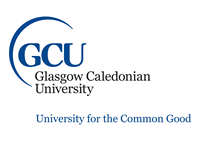SHLS20047
Chronic wound treatment costs >£5.3 billion per year and is a burden to patients; thus there is an imperative to develop new therapies. Fibrosis, the formation of excessive fibrous tissue, is a hallmark of diabetes and contributes to the failure of wound healing seen in diabetic skin, which can ultimately result in ulcer formation. In diabetes, fibrosis causes expansion of the extracellular matrix (ECM) – the skin scaffold. Members of the insulin-like growth factor binding protein (IGFBP) superfamily are involved in this process. Connective tissue growth factor (CTGF) interacts with transforming growth factor β (TGF-β) to increase fibroblast stiffness. We have previously shown that CTGF gene expression changes in dermal fibroblasts exposed to high glucose levels. IGFBP-5 is increased in diabetic skin and fibrotic skin disease, where it may contribute to impaired wound healing. However, IGFBP-5 may act as an antagonist to CTGF and TGF-β, as IGFBP-5 inhibits keratinocyte migration in wound models.
This project examines IGFBP superfamily members in diabetic fibrosis in skin, dissecting the mechanisms by which they interact to alter ECM deposition and cell function, with the aim of improving wound healing in 3D skin models, and revealing therapeutic molecular targets. Human dermal fibroblasts and keratinocytes from diabetic and normal donors will be sourced from the GCU Skin Research Tissue Bank, with systemic sclerosis samples obtained from local dermatologists. The outputs will contribute to our wound healing studies mitigating fibrosis in diabetes. The collaborations developed here between the PhD student, scientists, clinicians and Pharma companies (such as Gilead) that specialise in fibrosis and peptide research make the future development of novel therapeutics a real possibility. The student will benefit from an experienced supervisory team with backgrounds in Dermatology and Diabetes, and have the opportunity to attend focussed meetings such as the Scottish Skin Biology Club (http://scottish-skin-biology-club.org/).
The successful applicant will hold a first or upper second class honours degree within biological sciences, or a masters degree within biological sciences, with previous laboratory research experience desirable.
Applicants should apply for their preferred intake date using the Biological Sciences links via the Application Process page

 Continue with Facebook
Continue with Facebook



